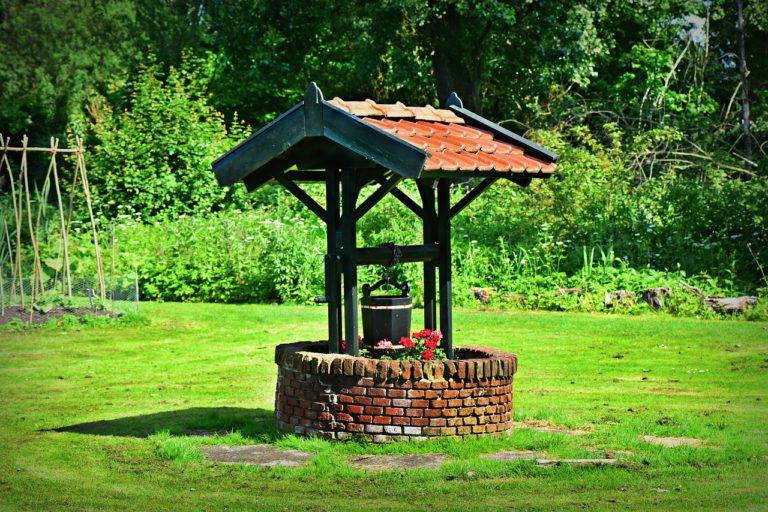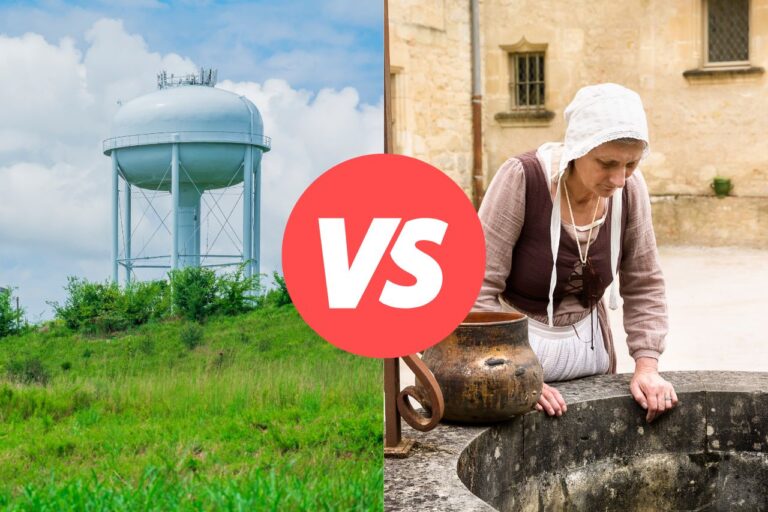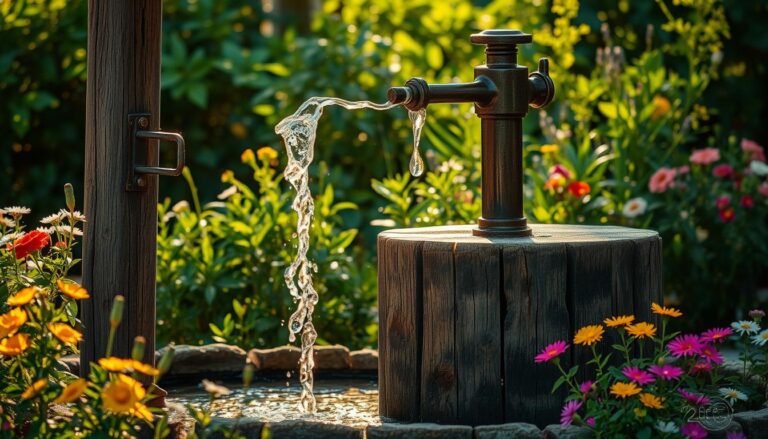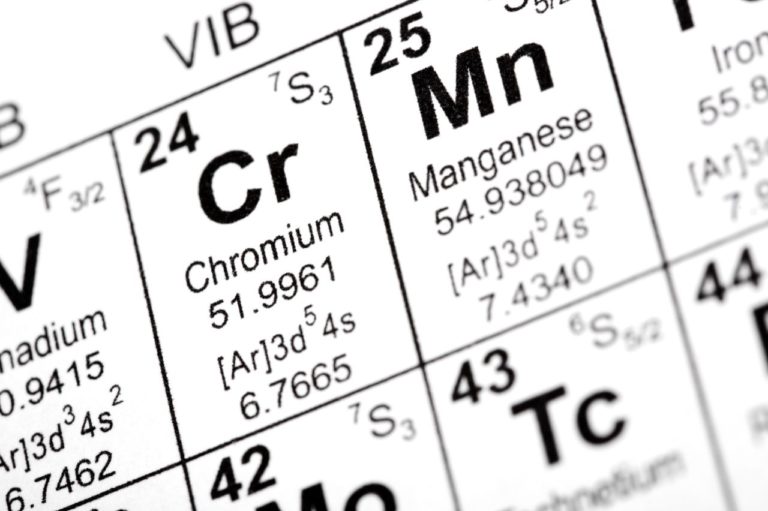Weighing the Pros and Cons of a Private Well System
Are you considering installing a private well system on your property? This decision can be both exciting and daunting, as it involves weighing the advantages and disadvantages of having a personal water source. Unlike municipal water supplies, a private well offers a natural and potentially cost-effective solution for your water needs.
For many homeowners, the appeal of a private well lies in its potential for natural filtration and taste, as well as the possibility of reducing water bills over time. However, it’s crucial to consider the responsibilities that come with maintaining a private well, including regular testing and maintenance to ensure water quality. As discussed in a comprehensive analysis on LinkedIn, understanding the pros and cons is key to making an informed decision.
Key Takeaways
- Private wells can offer natural filtration and better taste.
- They can be cost-effective in the long run.
- Regular maintenance is crucial for water quality.
- Private wells can be susceptible to contamination risks.
- Dependency on electrical power is a consideration.
Understanding Private Well Systems
Understanding the basics of private well systems is crucial for homeowners considering this water solution. A private well system can provide a reliable and independent source of water, but it’s essential to comprehend how it works and the different types available.
What Is a Private Well System?
A private well system is a self-contained water supply system that draws water from underground aquifers. Unlike public water systems, private wells are not managed by a municipal or local government entity, giving homeowners more control over their water supply.
How Private Wells Work
Private wells work by using a pump to draw water from the underground aquifer to the surface. The water is then treated and distributed throughout the home. The type of pump used can vary depending on the depth of the well and the water table level.
Types of Private Wells
There are several types of private wells, each with its unique characteristics and advantages.
Drilled Wells
Drilled wells are constructed by drilling into the ground until the water table is reached. They are often deeper than other types of wells and can provide a more reliable source of water.
Dug Wells
Dug wells are shallow wells that are typically constructed by digging a large hole into the ground. They are often less expensive to construct but may be more susceptible to contamination.
Driven Wells
Driven wells involve driving a pipe into the ground to access water. They are often less expensive than drilled wells but may not be as reliable.
| Type of Well | Depth | Reliability | Cost |
|---|---|---|---|
| Drilled Wells | Deep | High | High |
| Dug Wells | Shallow | Low | Low |
| Driven Wells | Variable | Medium | Medium |
When comparing private well vs public water system, it’s essential to consider the advantages of private wells, including independence and potentially better-tasting water. However, private wells require regular maintenance to ensure water quality.
The Pros and Cons of Private Well Water
Understanding the pros and cons of private well water is vital for homeowners contemplating this alternative water source. Private wells can offer several benefits, but they also come with unique challenges.
Overview of Key Considerations
When evaluating private well water, several key considerations come into play. Homeowners must consider the initial installation costs versus the long-term savings on municipal water bills. Additionally, the quality of the well water and the need for treatment systems are crucial factors. It’s also important to consider the maintenance responsibilities and potential issues related to power dependency and water supply limitations.
Who Benefits Most from Private Wells
Private wells can be particularly beneficial for homeowners in rural areas where municipal water is not available. They can also be advantageous for those looking to reduce their reliance on public water systems. Homeowners who value independence and potentially better-tasting water may also find private wells to be an attractive option.
Regional Variations Across the United States
The feasibility and benefits of private wells can vary significantly across different regions in the United States. Areas with abundant groundwater resources may find private wells to be a cost-effective solution, while regions with scarce water resources or specific geological conditions may face challenges. Understanding these regional variations is crucial for homeowners considering a private well.
In conclusion, while private wells offer several advantages, including potential cost savings and independence from municipal water supplies, they also come with significant responsibilities, such as regular maintenance and testing. Homeowners must carefully weigh these factors when deciding if a private well is right for them.
Advantages of Having a Private Well
The advantages of having a private well are multifaceted, ranging from financial savings to improved water quality. For many homeowners, the decision to install a private well is driven by the desire for self-sufficiency and control over their water supply.
No Monthly Water Bills
One of the most significant financial benefits of having a private well is the elimination of monthly water bills. Once the well is installed, the only costs associated with the water supply are maintenance and electricity to power the pump. This can lead to substantial savings over time, especially for households with high water usage.
Freedom from Municipal Restrictions
Private well owners enjoy the freedom to use their water as they see fit, without being subject to municipal restrictions on water usage. This is particularly beneficial for homeowners with gardens, pools, or livestock, as they can water their plants and animals without worrying about violating local water conservation measures.
Potential for Better Tasting Water
Many people find that well water tastes better than municipally supplied water, which can be influenced by the treatment processes and source of the water. The taste of well water can vary depending on the geology of the area and the presence of certain minerals or substances.
Independence During Public System Failures
During natural disasters or infrastructure failures that can disrupt public water supplies, private wells provide a reliable source of water. This independence can be a significant advantage, especially in areas prone to such events.
Emergency Preparedness Benefits
Having a private well can be a crucial component of emergency preparedness. In the event of a power outage or other disaster, a well can provide a steady supply of water for drinking, cooking, and hygiene. It’s essential for well owners to consider backup power sources, such as generators, to ensure continued access to their well water.
In summary, the benefits of having a private well include financial savings, independence from municipal water supplies, and the potential for better-tasting water. These advantages make private wells an attractive option for homeowners seeking autonomy and reliability in their water supply.
Disadvantages of Private Well Ownership
While private wells offer numerous benefits, they also come with several significant drawbacks that homeowners must consider. Understanding these disadvantages is crucial for making an informed decision about whether a private well is the right choice for your home.
Upfront Installation Costs
One of the primary disadvantages of private well ownership is the high upfront cost associated with installation. Drilling a well can be expensive, with costs varying widely depending on factors such as the depth of the well, the geology of the area, and local regulations. According to exploring the costs of an off-grid water, the initial investment can be substantial.
Ongoing Maintenance Responsibility
Private well owners are responsible for the maintenance of their wells, which includes regular testing and potentially costly repairs. This ongoing responsibility can be a significant drawback for some homeowners.
Power Dependency Issues
Private wells rely on pumps to bring water to the surface, which means they are dependent on electricity to function. During power outages, wells may not operate unless there is a backup power source, such as a generator.
Limited Water Supply Possibilities
The water supply from a private well is limited by the well’s capacity and the aquifer’s recharge rate. This limitation can lead to issues during periods of high demand or drought.
Drought Vulnerability
A significant concern for private well owners is the vulnerability of their water supply during droughts. When rainfall is scarce, the water table can drop, reducing the well’s yield or even causing it to dry up. This can have serious implications for households relying on the well for their water needs.
To better understand the potential impacts, consider the following comparison of water supply risks during drought conditions:
| Water Source | Drought Vulnerability | Typical Response |
|---|---|---|
| Private Well | High | Drilling deeper or hauling water |
| Public Water System | Variable | Conservation measures, alternative sources |

In conclusion, while private wells can offer a reliable source of water for many homeowners, they come with significant disadvantages that must be carefully considered. From high upfront costs to vulnerability during droughts, understanding these challenges is essential for making an informed decision.
Private Well vs. Public Water System Comparison
When considering a water supply for your home, one of the most critical decisions you’ll make is whether to install a private well or connect to a public water system. This decision involves a multifaceted comparison of various factors.
Cost Differences Over Time
The cost implications of choosing between a private well and a public water system are significant. While the initial installation cost of a private well can be high, it eliminates the need for monthly water bills, potentially saving money over time.
In contrast, public water systems charge monthly or bimonthly, and while the initial connection fee might be lower than the cost of drilling a well, the cumulative effect of these bills can be substantial.
| Cost Factor | Private Well | Public Water System |
|---|---|---|
| Initial Cost | High (Drilling and Equipment) | Variable (Connection Fees) |
| Ongoing Costs | Maintenance and Testing | Monthly/Bimonthly Bills |
Water Quality Variations
Water quality is another critical aspect where private wells and public water systems differ. Public water systems are regulated by the EPA and must adhere to strict water quality standards.
“The Safe Drinking Water Act requires public water systems to provide water that is safe for human consumption, meeting or exceeding federal and state regulations.”
Private wells, on the other hand, are not subject to the same regulations, placing the responsibility on homeowners to ensure their water is safe to drink.
Reliability Factors
Reliability is a key consideration. Public water systems are generally more reliable, with built-in redundancies and regular maintenance by professionals.
Private wells rely on the homeowner for maintenance and are susceptible to failures due to power outages or mechanical issues.
Environmental Considerations
Finally, environmental considerations play a role in this decision. Private wells use groundwater, which can be a more sustainable option in areas where the aquifer is not under stress.
In conclusion, the choice between a private well and a public water system depends on various factors, including cost, water quality, reliability, and environmental impact. Homeowners must weigh these considerations carefully to make an informed decision.
Private Well Maintenance Requirements
Regular maintenance is the backbone of a functional and efficient private well system. Ensuring your well operates effectively requires a proactive approach to maintenance, including regular testing and inspections.
Regular Testing Schedule
One of the critical aspects of private well maintenance is adhering to a regular testing schedule. This involves checking the water quality at least once a year for contaminants such as bacteria, nitrates, and other potential pollutants. Private well owners should work with a certified laboratory to ensure accurate test results.
Common Maintenance Tasks
Several maintenance tasks are crucial for the longevity and efficiency of your private well. These include:
- Pump maintenance to ensure it’s working correctly and efficiently.
- Inspecting the well cap and casing for any signs of damage or wear.
Pump Maintenance
The pump is a vital component of your well system. Regularly check the pump’s performance and inspect for any signs of wear or malfunction. Proper pump maintenance can prevent costly repairs and ensure a consistent water supply.
Well Cap and Casing Inspection
Inspecting the well cap and casing is crucial for preventing contamination. Ensure the cap is securely locked and the casing is free from cracks or damage. This simple inspection can significantly reduce the risk of water contamination.

When to Call a Professional
While some maintenance tasks can be performed by the well owner, certain situations require professional assistance. If you notice any unusual changes in your water quality, pressure, or suspect equipment failure, it’s time to call a professional. They can diagnose and fix issues before they become major problems.
Seasonal Maintenance Considerations
Different seasons bring different challenges for private well owners. For instance, during heavy rainfall, there’s a higher risk of contamination. Regularly inspect your well after such events and consider additional testing if necessary. Adjusting your maintenance schedule according to seasonal changes can help prevent potential issues.
Water Quality and Treatment Options
Ensuring the quality of private well water is crucial for the health and safety of households relying on it. Private well owners must be aware of potential contaminants and take appropriate measures to treat their water.
Common Contaminants in Well Water
Private wells can be susceptible to various contaminants, including bacterial, mineral, and chemical issues.
Bacterial Contamination
Bacteria such as E. coli can enter the well through surface water or nearby septic systems, posing serious health risks.
Mineral Issues
High levels of minerals like iron and manganese can cause taste, odor, and staining problems.
Chemical Concerns
Chemicals from agricultural runoff or nearby industrial activities can also contaminate well water, necessitating regular testing.
Testing Methods and Frequency
Regular testing is essential to identify contaminants before they become a health hazard. The frequency of testing depends on several factors, including the well’s location and surrounding land use.
Water Treatment Systems for Private Wells
Various treatment systems are available to address different types of contaminants. These include filtration systems, disinfection units, and reverse osmosis systems.
Choosing the right treatment system depends on the type and level of contaminants present in the water. Consulting with a water treatment professional can help determine the most effective solution.
Signs of Water Quality Problems
Changes in water taste, odor, or appearance can indicate a water quality issue. Regular monitoring and maintenance are key to ensuring safe and clean drinking water.
By understanding common contaminants and utilizing appropriate testing and treatment methods, private well owners can protect their health and enjoy clean, safe drinking water.
Legal and Regulatory Considerations for Well Owners
Private well owners must be aware of the various legal and regulatory considerations that impact their water supply. Understanding these factors is crucial for ensuring compliance with the law and maintaining a safe and reliable water source.
State and Local Regulations
Regulations governing private wells vary significantly across different states and local jurisdictions. It’s essential for well owners to familiarize themselves with the specific laws and regulations in their area. For instance, some states require regular inspections and testing of well water, while others may have stricter construction standards.
Key Regulatory Areas include well construction, operation, and maintenance. Compliance with these regulations not only ensures the well’s longevity but also protects the surrounding water resources.
Permits and Documentation
Obtaining the necessary permits is a critical step in the process of drilling and operating a private well. The permitting process typically involves submitting detailed plans and specifications for the well, including its location, depth, and construction materials.
Well owners should maintain thorough documentation of their well’s construction, maintenance, and any water quality testing results. This information can be invaluable for troubleshooting issues or demonstrating compliance during inspections.
Property Boundaries and Water Rights
The relationship between private wells and property boundaries can be complex, particularly in areas where water rights are a concern. Well owners must understand their rights and responsibilities regarding water usage and how it may impact neighboring properties.
In some regions, monitoring well water levels is crucial to avoid depleting the aquifer or affecting nearby wells.
Well Abandonment Requirements
When a well is no longer needed or has become unusable, proper abandonment is necessary to prevent groundwater contamination and ensure public safety. Regulations regarding well abandonment vary, but typically involve sealing the well to prevent surface contaminants from entering the aquifer.
Well owners should consult with local authorities or professionals to ensure that the abandonment process is carried out correctly and in compliance with local regulations.
| Regulatory Aspect | Description | Importance |
|---|---|---|
| State and Local Regulations | Varying laws governing well construction, operation, and maintenance. | High |
| Permits and Documentation | Necessary for legal operation and maintenance records. | High |
| Property Boundaries and Water Rights | Understanding rights and impacts on neighboring properties. | Medium |
| Well Abandonment Requirements | Proper sealing to prevent contamination and ensure safety. | High |
Conclusion: Is a Private Well Right for Your Home?
Deciding whether to install a private well system for your home involves carefully weighing the pros and cons of private well ownership. As discussed, the advantages include no monthly water bills, freedom from municipal restrictions, and the potential for better-tasting water. However, private well owners must also consider the upfront installation costs, ongoing maintenance responsibilities, and potential issues related to power dependency and limited water supply.
Understanding the pros and cons of private well systems is crucial in making an informed decision. By considering factors such as your water needs, local regulations, and the geology of your area, you can determine if a private well is a viable option for you. Regular maintenance and testing are essential to ensure the water quality meets your needs and complies with local health standards.
Ultimately, a private well can be a great choice for homeowners seeking independence from public water systems and potentially lower costs over time. By weighing the pros and cons of private well ownership and understanding your specific situation, you can make a decision that best suits your home and lifestyle.







